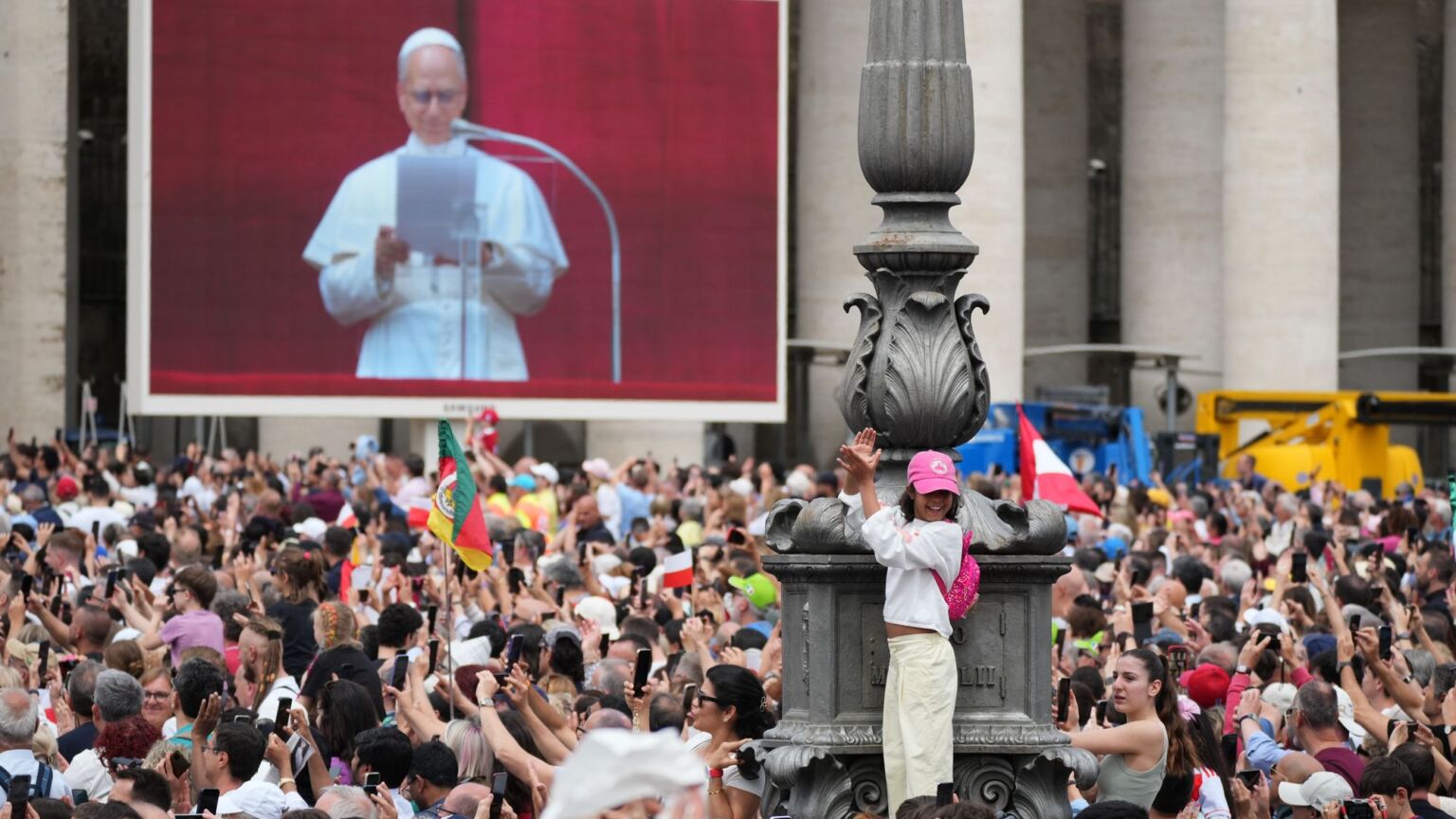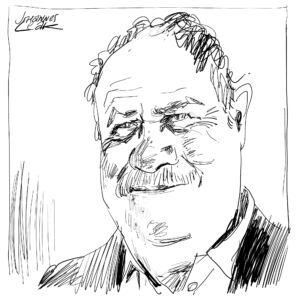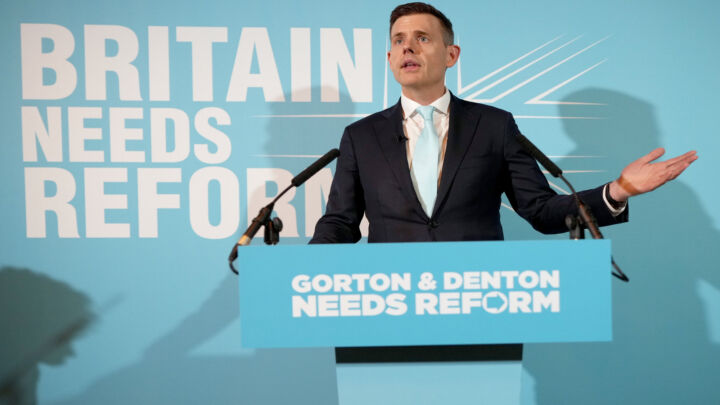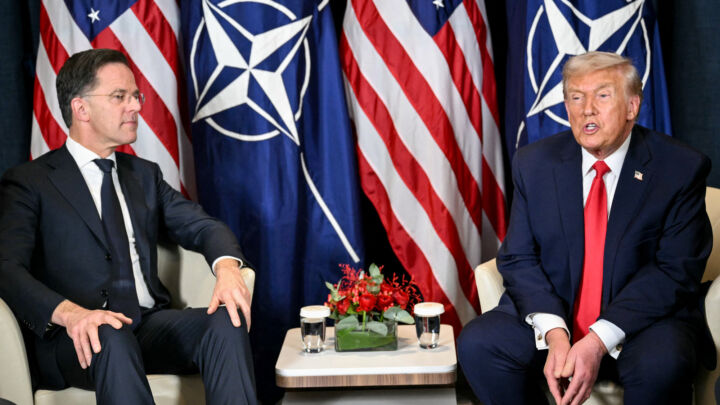Will the faithful inherit the Earth?
The election of Pope Leo arrives at a time of rapid Christian revival.

Want unlimited, ad-free access? Become a spiked supporter.
The elevation of the new pope from Chicago may have excited progressive ideologues with hopes for another wokeish papacy. But the rise of little-known Robert Prevost to his new status as Pope Leo XIV comes amid a profoundly unwoke recovery of religious feeling in the West. After generations of decline, Christianity is making a comeback.
To be sure, this revival is still tentative and faces enormous headwinds. The decline of religion remains a fundamental reality in most Western countries, particularly in Europe, where well over 50 per cent of people under the age of 30 do not identify with any religion. In the US, the trajectory has been similar, albeit at a slower pace. In 1965, 70 per cent of respondents to a Gallup poll said religion is ‘very important’ in their lives. Today, fewer than half of Americans – 45 per cent – say religion is ‘very important’.
This decline has led some religious conservatives, like Ross Douthat of the New York Times, to predict a coming ‘age of extinction’ – a world bereft of churches, community and families. Others, like Christian intellectual Rod Dreher, suggest that religious people, like the early Christians, should create their own separate communities – what he calls ‘the Benedict option’ – to cope with an increasingly post-religious world.
Yet the pessimists may be overstating their case. In America, at least, there is evidence of a lingering spiritual hunger: more than half of ‘religiously unaffiliated’ Americans, for example, still believe in God or some kind of universal spirit. Meanwhile, one recent survey shows that young people are increasingly embracing religion, with millennials among the biggest drivers of Christianity’s revival in the US.
There is even evidence of renewal in decidedly secular Europe. France’s Catholic Church claims to have baptised 45 per cent more people this Easter than it did last year. According to the Bible Society, the UK is undergoing a similar conversion. It reports that the number of 18- to 24-year-olds who attend church at least monthly has quadrupled, from four per cent in 2018 to 16 per cent today. The Bible Society said there are two million more people attending church now than there were six years ago.
Religion’s resurgence offers a valuable counterweight to the recent decline in marriage, family, community and civil society – a decline that has been accelerated by technology. Pope Leo, in naming artificial intelligence as humanity’s primary challenge, shows a great insight into these changes. ‘In our own day, the church offers everyone the treasury of its social teaching in response to another industrial revolution and to developments in the field of artificial intelligence that pose new challenges for the defence of human dignity, justice and labour’, he said earlier this month.
At a time when tech elites seem increasingly obsessed with melding humans and machines, Leo’s views matter profoundly. For a growing number of influential people, mortality is viewed as a ‘bug’ to be corrected by technology. This philosophy – ‘transhumanism’ – has gained a number of devotees from Silicon Valley, including the likes of Larry Page, Peter Thiel and Sam Altman. Recently, Mark Zuckerberg has even claimed that the pervasive loneliness of modern society can be addressed by the use of AI-generated avatars assuming the roles of friends and therapists.
But AI, no matter how cleverly developed, cannot replace human contact in the physical world. Indeed, this ‘transhuman’ perspective conflicts with the very human intimacy that is central to religious communities. As the late Jonathan Sacks warned, an algorithm ‘has no space for empathy or fellow feeling’.
The broader rebellion against atheism that we are currently witnessing has been building for some time. The pre-eminence of secularism is now openly opposed by many public intellectuals, such as Jordan Peterson, Douglas Murray and Ayaan Hirsi Ali. More remarkable still has been the revival of ‘natural theology’ among a growing number of scientists, drawing inspiration from breakthroughs in such fields as biology and physics to evoke a less random understanding of the universe.
Of course, the notion of science complementing faith is not new. Isaac Newton and Johannes Kepler openly embraced religion as they plumbed the frontiers of science. Late in life, Albert Einstein, noting that his theories devastated notions of a static universe, moved from an agnostic orientation to one that acknowledges what he called ‘a cosmic religious feeling’. Einstein’s German contemporary, Werner Heisenberg, described a similar transformation. ‘The first gulp of the natural sciences will turn you into an atheist’, he wrote, ‘but at the bottom of the glass, God is waiting for you’.
In the long run, however, the key to religious revival lies not with great intellectuals, but at the grassroots level. Christianity does best among people seeking to improve their lives, most notably in Africa and among immigrants. In America and elsewhere, evangelical churches and outward looking Catholic missionaries, like Leo, bring a message of hope to the world’s lower and working classes, striving for a better future.
Might the growth of Christianity benefit America and the West? So far, the answer to this question appears to be yes. Increasingly, evidence suggests that Christianity is an antidote to many of the ills of the modern West, from shrinking families to an epidemic of anxiety, depression and loneliness.
Take America’s much-reported ‘demographic decline’. According to recent studies, the fertility rate of women attending weekly religious services is significantly higher than that of women who don’t go to church at all. As families play a critical role in building community cohesion, something much needed in modern America, a greater number of women attending church can only be considered a good thing.
Christians are also maintaining their historical commitment to charity. In the US, religious adherents continue to be the biggest contributors to charities. Sixty-five per cent of people who attend church weekly give to the poor, compared with 41 per cent among the non-religious. Overall, 73 per cent of charitable contributions come from religious sources, while nearly 60 per cent of beds for the homeless are provided by faith-based institutions.
This isn’t the only humane task Christian churches continue to commit to. Much of America’s success as an immigrant nation can be attributed to the actions of the faithful. John Hughes, an Irish immigrant who became New York’s first Catholic archbishop in 1850, helped build the city’s extensive Catholic education system. According to recent research, Hughes’s endeavours played a key role in turning the once-impoverished masses of European migrants – Italian, Irish and Polish – to well-above-average education levels and, in turn, earnings. Little has changed: boys who attend religious school, notes Tulane University sociologist Ilana Horwitz, are twice as likely to graduate from college than those in public schools.
Beyond education, it is clear that religious faith bestows other critical social benefits. For instance, just 10 per cent of the religiously observant say they have no close friends, a number that almost doubles for those who have no faith. According to a recent Harvard study, religious students also enjoy better health outcomes.
Needless to say, an injection of happiness and generosity is desperately needed in 21st-century America. As well as in Europe. Young Americans in particular are increasingly held back by anxiety, depression and an overall lack of purpose in life. Considering traditional religions’ emphasis on generosity and community, it is hardly surprising to find that 61 per cent of studies find less depression among the religious.
Liberal faiths, such as mainstream protestants, are not well positioned to benefit from the US’s religious rebirth. Even if Pope Leo embraces mass migration, like his predecessor, he will likely endorse traditional Catholic views on homosexuality, trans, the sanctity of family and the importance of hard work.
As is becoming increasingly clear, preserving traditional ideas is more important to faith’s future than appealing to progressive nostrums. In 2019, more Protestant churches closed than opened in the US as mainstream, increasingly woke denominations, bled members. Once-dominant Protestant churches have gone from roughly 50 per cent of Americans in the 1950s to barely nine per cent today. In contrast, more conservative faiths remain robust. As Pope Leo knows from his own experience, evangelicals in historically Catholic Latin America, including Peru where he spent much of his ministry, have surged in number.
The future of Catholicism depends on tapping into this more conservative mood. There has been a decided tendency among the clergy, particularly Pope Francis’s Jesuits, to adopt progressive positions on issues like gender, gay marriage and open borders. Yet the Catholic laity is, if anything, conservative on cultural issues. Similarly, among Jews, reform and even conservative synagogues are struggling, while orthodox Judaism, particularly the thriving Chabad movement, is gaining in both members and influence.
A religious recovery may be just starting. Contrary to all expectations, the future may be more conducive to religious observance than anyone might have predicted a few years ago. Nor, it seems, will this be a bad thing.
Joel Kotkin is a spiked columnist, a presidential fellow in Urban Studies at Chapman University in Orange, California, and a senior research fellow at the University of Texas’ Civitas Institute.
£1 a month for 3 months
You’ve hit your monthly free article limit.
Support spiked and get unlimited access.
Support spiked – £1 a month for 3 months
spiked is funded by readers like you. Only 0.1% of regular readers currently support us. If just 1% did, we could grow our team and step up the fight for free speech and democracy.
Become a spiked supporter and enjoy unlimited, ad-free access, bonus content and exclusive events – while helping to keep independent journalism alive.
———————————————————————————————————————————–
Exclusive January offer: join today for £1 a month for 3 months. Then £5 a month, cancel anytime.
———————————————————————————————————————————–
Monthly support makes the biggest difference. Thank you.










Comments
Want to join the conversation?
Only spiked supporters and patrons, who donate regularly to us, can comment on our articles.